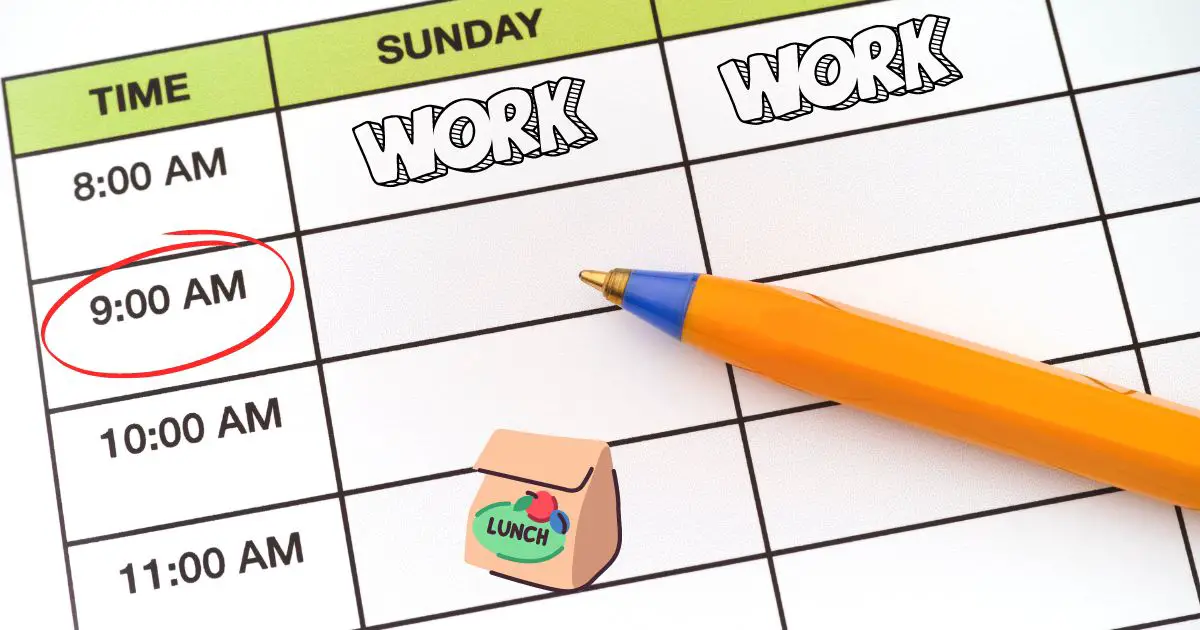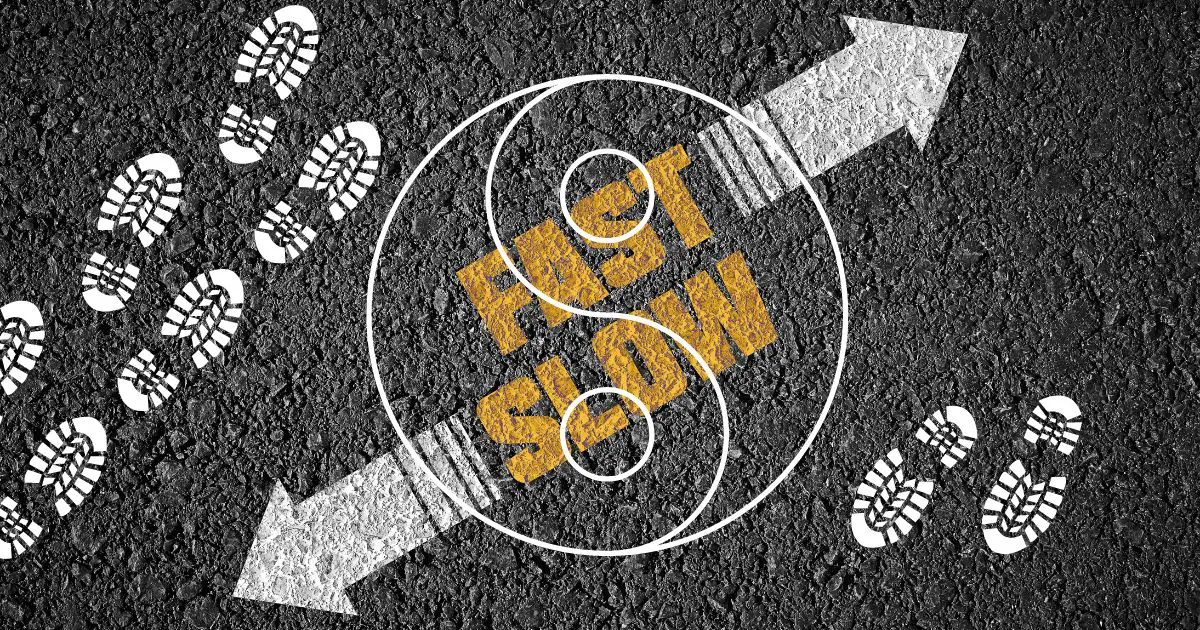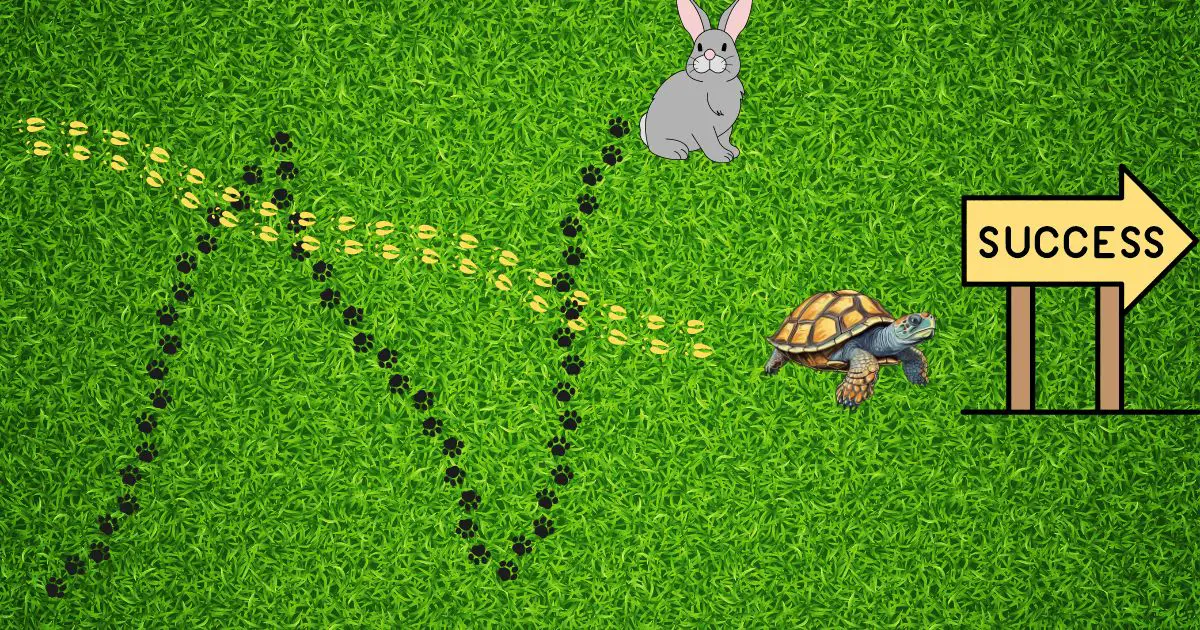In a fast-moving world, the age-old adage “slow and steady wins the race” may seem outdated or even irrelevant. However, upon closer examination, this timeless wisdom holds profound truths that can guide us through the complexities of modern life. Let’s dig into whether embracing a deliberate, consistent approach still holds merit amidst the hustle and bustle of contemporary society.
Slow and steady doesn’t always win the race, just as fast doesn’t always win. A well-balanced approach might be more effective, or knowing when to go fast and when to go slow would be a better choice in winning any race. You don’t want to go too slow and end up last, and you don’t want to burn out because you went too fast and couldn’t finish the race.
1. The Importance of Consistency

Establishing Sustainable Habits
Consistency reigns supreme in the pursuit of both personal and professional success, nobody can achieve monumental feats overnight. Rather, daily incremental progress lays the groundwork. To illustrate this concept, consider a marathon runner. Their successful crossing of the finish line is not due to sporadic bursts of effort but rather an ongoing, consistent training routine.
We must recognize the criticality of establishing sustainable habits. Small actions, consistently repeated yield significant results over time. Individuals can harness this power by setting manageable goals and integrating them into their daily routines. In doing so, they gradually build momentum, effecting lasting changes. Maintaining these habits amidst life’s inevitable challenges and distractions requires an integral cultivation of self-discipline coupled with resilience.
Building Trust and Reliability
Trust flourishes through consistency, be it in relationships, careers, or actions. This demonstrates that reliability over time nurtures credibility as well as respect. Our world is saturated with temporary trends and untrustworthy information. However, a persistent presence cuts through this noise of inconsistency to cultivate an image of trustworthiness.
Trust and reliability building extends past the mere consistency in actions. It encompasses integrity which is a key component of communication and interaction authenticity. Honesty, transparency, and follow-through are not optional but rather essential elements for cultivating relationships based on trust personally or professionally. Individuals who align their words with deeds can forge meaningful connections founded upon mutual respect and understanding by prioritizing accountability.
Nurturing Long-Term Growth in a Slow and Steady Race
Rome wasn’t built in a day, and lasting achievements also do not materialize instantly. Sustainable growth and the prevention of burnout result from embracing a steady pace. Instead of yielding to the allure of rapid yet unsustainable progress, one should commit to gradual improvement for longevity and resilience in challenging situations.
Accepting a growth mindset, which values learning and adaptation, plays a crucial role in nurturing long-term growth. Fostering resilience and innovation occurs when setbacks are embraced as opportunities for reflection and refinement. Seeking mentorship while enveloping oneself within a supportive community offers invaluable guidance and encouragement during the journey toward personal as well as professional development.
2. The Pitfalls of Hasty Actions

Succumbing to Burnout
Modern life’s hectic pace frequently creates a “more is more” mindset. This, in turn, propels individuals to stretch themselves too thin for swift success. Yet this relentless hustle can provoke physical and mental fatigue, a condition that may ultimately disrupt long-term objectives and put well-being at risk.
Research indicates that Burnout significantly and detrimentally affects not only individuals but also organizations. It contributes to reduced productivity, heightened absenteeism, and elevated turnover rates. This is a profound concern for workplace dynamics. This is why recognizing the tell-tale signs of burnout, implementing strategies to uphold work-life balance, and enhancing employee well-being are crucial in cultivating an environment that thrives sustainably with optimal health.
Sacrificing Quality for Quantity
The temptation to prioritize speed over substance dominates in this era of instant gratification. Yet, one often compromises quality for the sake of expediency when producing work hastily. It lacks depth and precision. Whether pursuing creativity or professional goals, investing time and attention always yields outcomes that stand superior against the test of time.
Prioritizing quantity over quality not only devalues the end product but also undermines trust and credibility. In our hyper-connected world today, consumers are quick to distinguish between superficial content and genuine, meaningful experiences. By valuing quality above all else, be it for individuals or organizations, we can carve out a unique position within an overcrowded marketplace that is founded on trustworthiness and authenticity that fosters enduring relationships.
Overlooking Strategic Planning
Rarely do sustainable results emerge from impulsivity. In the rush for immediate gains, individuals may discard strategic planning and foresight, neglecting to anchor their future success on a solid foundation. However, by adopting a more deliberate approach that anticipates obstacles and navigates challenges with increased efficacy, it is possible to counter this detrimental behavior.
Strategic planning extends beyond mere goal establishment. It involves risk evaluation, opportunity recognition, and the formulation of contingency plans to alleviate potential drawbacks. In the current dynamic and inherently unpredictable business environment, strategic agility is crucial. Organizations investing in this form of planning not only position themselves for success but also exhibit adaptability and resilience amidst inevitable change.
3. Embracing Balance and Intentionality

Cultivating Patience and Resilience
In a culture that glorifies instant success, patience remains an undeniable virtue. Mastering the art of embracing one’s journey, with its inevitable twists and turns, fosters resilience. It cultivates fortitude. Individuals who commit to this long haul do not view setbacks or delays as discouragement. Instead, they perceive them as golden opportunities for growth and learning.
Not merely the ability to wait, patience necessitates maintaining a positive attitude and sense of purpose amidst challenges. It requires one to reframe setbacks as temporary roadblocks and cultivate a mindset of perseverance and resilience. By gracefully embracing uncertainty with composure, individuals can navigate adversity more easily. They come to recognize that true strength lies in courageously confronting difficulties with resilience and not avoiding them.
Prioritizing Well-Being and Fulfillment
Success is hollow without fulfillment. Individuals can achieve a transcendent sense of purpose and satisfaction that surpasses material gain by prioritizing well-being and aligning their actions with core values. Introspection and course correction become possible through slow, steady progress. This ensures the meaningfulness and sustainability of achievements.
Cultivating a holistic approach to success, which includes internal harmony and contentment along with external accomplishments, is an endeavor that prioritizes well-being. This pursuit involves honoring one’s physical needs as well as emotional and mental requirements. It fosters a sense of fulfillment extending beyond professional aspirations.
When individuals align their actions with values while nurturing authentic connections they experience profound fulfillment. This enriches every facet of life, surpassing the limited boundaries set by conventional success.
Celebrating Milestones Along the Way
Crucial for maintaining motivation and momentum is acknowledging progress. No matter how incremental, this is a key principle. Small victories celebrated not only reinforce positive habits but also fuel continued progress. Embracing the journey rather than fixating solely on the end goal allows for a more holistic appreciation of consistent effort’s transformative power.
As we celebrate milestones on our journey, they powerfully remind us of the progress we’ve made and the obstacles conquered. They imbue a sense of pride and accomplishment in us, thereby reconfirming our commitment to long-term goals and aspirations. Further still, this celebration fosters an ongoing positive feedback loop. It reinforces behaviors and habits that are key contributors to continued success.
Cultivating a mindset of gratitude and celebration allows individuals to harness motivation, drawing inspiration from their smallest achievements. This propulsion propels them towards both personal fulfillment as well as professional success on their ongoing journey.
4. Case Studies – Real-World Examples

Steve Jobs and the Apple Revolution
Renowned for his visionary leadership at Apple Inc., Steve Jobs exemplified the power of perseverance and long-term vision. He faced numerous setbacks throughout his career. Yet, remained steadfast in his commitment to innovation. Ultimately revolutionizing the tech industry, prioritizing quality over expedience through user-centric product design, was a result.
Jobs underscored simplicity and elegance in design. It was a factor that distinguished Apple from its rivals, a resonating strategy with consumers demanding intuitive, user-friendly technology. Injecting creativity and passion into all facets of Apple’s products, he forged an almost religious following beyond conventional brand loyalty. This transformation metamorphosis catapulted Apple into a cultural phenomenon. This transformative power still influences the contemporary technological terrain.
During much of my youth, Microsoft was the dominant company, with Apple often in its shadow. However, Steve Jobs’ persistence paid off, as towards near the end of his life, he transformed Apple into the world’s largest company, surpassing Microsoft. If you have a goal you haven’t achieved yet, remember that it takes time, perseverance, and hard work to succeed.
J.K. Rowling’s Literary Triumph
J.K. Rowling, before she achieved international acclaim with the Harry Potter series, faced countless rejections and setbacks. Her unwavering dedication to her craft, coupled with meticulous attention to detail, ultimately led not only to literary success but also created an enduring impact across generations. The transformative potential of persistence and resilience in adversity stands as underscored by Rowling’s journey.
Rowling’s struggles and experiences infuse her writing with a resonant depth and authenticity, captivating readers of all ages. Her vivid imagination and compelling storytelling whisk us into Hogwarts’ enchanting world. There she imparts timeless lessons on friendship, courage, and even the potent force that is love. The enduring power of storytelling to inspire, captivate, and unite audiences across the globe finds its testament in her literary triumph.

Colonel Harland Sanders’s Late Success
Not everyone in America may recognize Colonel Harland Sanders, but they’re likely familiar with his renowned KFC restaurant chain which has now expanded world wide even to countries like Vietnam. What some might not know is that he was broke and 65 years old when his franchise took off, making him wealthy later in life. His story serves as a testament that no matter how far behind you are, it doesn’t mean you can’t win and succeed.
The Slow Food Movement – A Global Phenomenon
The Slow Food movement, originating as a grassroots response to modern society’s pervasive fast-food culture, advocates for mindful eating and sustainable food practices. Proponents of this movement prioritize quality over convenience. They embrace traditional cooking methods to foster an intimate connection with food. Their goal is not only global but also environmental.
The Slow Food movement catalyzes social change. It challenges the status quo and prompts individuals to re-evaluate their relationship not only with food but also with our broader ecosystem. Empowering consumers through initiatives like community-supported agriculture and farm-to-table dining. It equips them to make informed choices that prioritize health, sustainability, and ethical food production.
Embracing the principles of Slow Food, individuals contribute to a more equitable and resilient food system, one that nourishes both people and the planet alike. This is a prime example of quality being better than quantity, and hasty shortcuts, like fast food, are not better than carefully selected options.

5. The Value of Reflection and Adaptation
Pursuing personal and professional growth requires the carving out of moments for reflection and introspection. Amidst modern life’s relentless pace, one must pause to evaluate their progress. This allows them to refine goals and make necessary course corrections. Self-awareness is fostered through reflections, and a clarity of purpose emerges that enables individuals, in alignment with their values as well as aspirations, to recalibrate actions.
Adaptation epitomizes resilience and agility. It is a defining characteristic. Within our world of rapid change and uncertainty, the ability to pivot in response to evolving circumstances becomes paramount. Not rigidly adhering to predefined plans but rather remaining open for new possibilities and growth opportunities are what individuals who embrace adaptability do. By remaining flexible and responsive, they can navigate shifting landscapes with confidence and resilience.
Reflection and adaptation interlock in a dynamic feedback loop, propelling continuous improvement. As individuals reflect on their past experiences and outcomes, an action that informs future decision-making, they also garner insights. This iterative process of learning not only fosters innovation but nurtures creativity as well, empowering each individual to flourish amidst complexity and change.
Essentially, reflection and adaptation cultivate resilience, foster growth, and enhance overall well-being. Their value lies in this capacity. Integrating these practices into daily life enables individuals to navigate the journey’s ups and downs with grace, ensuring each step forward is intentional yet meaningful.
Conclusion
The bottom line is that the pace of life may continue accelerating. However, the timeless wisdom vested within the “slow and steady wins the race” saying still holds relevance, if not more so than ever. By fostering consistency, nurturing patience, and allocating intentional time, individuals can maneuver through modernity’s complexities gracefully yet robustly.
Success is an ongoing journey marked by incremental advancements. Profound transformations are also key to this process. As we navigate the hustle and bustle of today’s world, it remains essential to recall that perseverance rewards those who are daring enough to embrace an unhurried path.






